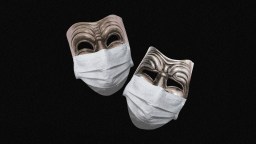health
The larger the stakes and scope, the less likely a conspiracy theory is to be true.
▸
4 min
—
with
Pups in puberty prefer not to listen to their owners.
There are countless studies that prove ecotherapy (often referred to as nature therapy) is beneficial for your physical and mental health.
In the near future, most unemployed Americans will have access to government-subsidized programs. But that’s set to change in 2021.
How should we think about the tension between opening the economy back up and preserving public health?
▸
with
R is a way of measuring an infectious disease’s capacity to spread.
Health care professionals worldwide are facing a second crisis, the consequences of which we’re only beginning to understand.
Some hold that mental disorders are brain diseases. Others argue that they’re social constructs used to medicalise aberrant behaviour.
Being aware of this issue is a big first step in helping vulnerable communities (such as those struggling with addiction) combat relapse during this pandemic.
Today’s agriculture workers face 21 days of heat that exceed safety standards. That number will double by 2050.
Most homes are using insufficient methods to determine when chicken is done cooking and safe to eat.
Your morning coffee is good for you – if you drink it at the right time.
Apps that warn about close contact with COVID-19 cases can help relax social distancing rules.
Should pharmaceutical companies pay people for their plasma? Here’s why paid plasma is a hot ethical issue.
▸
17 min
—
with
Combining two fabrics is the best way to filter out infectious coronavirus particles according to a new study.
It’s normal if you’re not productive in your creativity all the time. Even the greats took breaks.
▸
4 min
—
with
Prior to COVID-19, 45% of people with intellectual disabilities reported feeling lonely.
Many of the bathrooms uncovered at Pompeii and elsewhere were communal.
Rather than trekking up a mountain, a more accurate metaphor for human development involves navigating the waters of a choppy sea.
▸
6 min
—
with
Johns Hopkins University professor Susan Carnell explains the neuroscience behind eating out of boredom (and how to stop).
According to researchers at Washington State University, the answer is yes.
If a patient requires a ventilator, a new study finds they have a low chance of survival.
Men take longer to clear COVID-19 from their systems; a male-only coronavirus repository may be why.
A bipartisan group of economists, technology and public health experts, and ethicists developed a three-part plan to swiftly and safely reopen the American economy. Could it work?
How do you overcome the tension between autonomy and solidarity?
Dr. Robert Emmons and other researchers dig into the positive mental and physical health benefits of expressing gratitude.
When you stop predicting the future and comparing the present to the past, you can reach a beneficial flow state.
▸
4 min
—
with
This unsettling simulation shows how mucus-mist can rapidly spread in a grocery store.
The changes in brain structure aren’t the only bodily changes caused by zero gravity.
Couples that handle sexual rejection well can improve their relationship, but persistent or hostile patterns of rejection are never healthy.





























